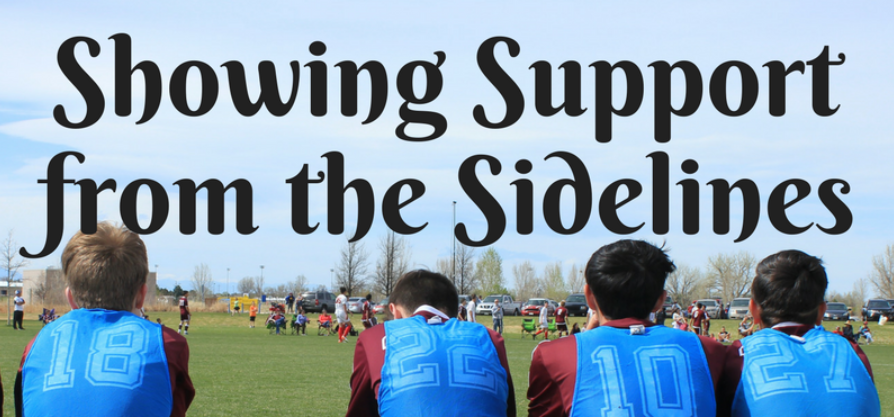Showing Support from the Sidelines
Posted by: Jair Vasquez | Boys Director of Coaching
At Colorado Rapids Youth Soccer Club we are very proud of the positive culture within our club, both on and off the field. We truly believe that the culture of our club is core to our foundation when working to become the best club in Colorado and the nation. The hard work our players put into games and training sessions is just one piece of the culture that makes Rapids Youth Soccer stand out among our peers. Positive soccer culture extends beyond the team and into the commitment our families on the sidelines make to show support for our players in an appropriate way.

This last weekend was the state-wide recognition of Silent Soccer Saturday. Each season, this day helps ignite the conversation around sideline behaviour, and how the Rapids Youth Soccer community can help support the long-term development of our players. We are so glad to have excited and supportive families within our program who turn out on game day ready to watch some soccer and cheer on our players! The sideline behaviour of our friends and families does affect the momentum and motivation of our players, so here are some tips for making sure our support truly does help players all season long.
Spectator Locations
During training sessions, parents and spectators are asked to observe from a distance. Please keep a distance from the fields during training and refrain from entering the training surface. Players will be released to join their families at the conclusion of team activities.
On game days, parents and spectators keep to the designated “spectator areas” across the field from the teams. Teams on one side, spectators on the other. This allows players and coaches a separate space along the sidelines to discuss game play and observe the game without outside commentary.
Cheering on Your Player
Naturally, we all enjoy cheering on our players from the sidelines throughout the game. However, think through the comments you are going to make before yelling them out. Often, giving instructions can confuse players and give them anxiety about their own decision-making or the instructions from their coach. Our players work very hard on specific topics during the week that coaches reinforce during games. When spectators yell conflicting instructions it can cause frustration, lack of focus, and disappointment in our players. Focus on the effort players are displaying, or wait until after a decision has been made to cheer for the players. Clapping is also a great way to encourage players without influencing the decision making process in the game.
Think of practices as a time to learn, while game day is a time to showcase what has been learned.
Interacting with Referees
First and foremost, we ask that all our members recognize the ongoing problem of referee abuse and the role it plays in the nationwide decline of new and returning referee registrations. The Colorado Referee Committee estimates that approximately 50% of the referees who certify as a Grade 8 referee eventually quit their jobs due to verbal abuse from spectators.
Officiating errors are naturally hard to swallow, as we care deeply about the game and our teams, but attacking the referee is not the appropriate way to address an issue. Please leave it up to your coach to discuss any officiating conflicts with the referees. This will help the referees to learn from the game play and keep them coming back to help us officiate games in the future.
Interacting with Opposing Families/Fans
In addition to showing support for your player, parents are expected to behave as a role model while on the sideline. Your kids are perceptive, and learn from the way you treat referees, coaches, opposing players, and other families. At no time should parents be engaged in a verbal conflict with anyone else. All our members represent Colorado Rapids Youth Soccer Club and their player while out on the fields. Simply enjoy the game and be respectful. If you have a concern, wait to privately discuss it with the coach until after the game.
24 Hour Rule
If you have a concern that directly relates to coaching decisions being made, such as playing time, we ask that you wait 24 hours to do so. Do not approach the coach in front of the team or your child. Game day can be very tiring and emotional for everyone, so it is important to schedule a private time to talk to your coach after the excitement from the day has gone down. This prevents a situation from escalating.
Our coaches should be able to answer any questions you might have, or direct you to someone else who can. If you still have questions after talking to the coach, your coach can connect you with the following staff members:
- Age-Group Director of Coaching
- Director of Coaching
- Executive Director









